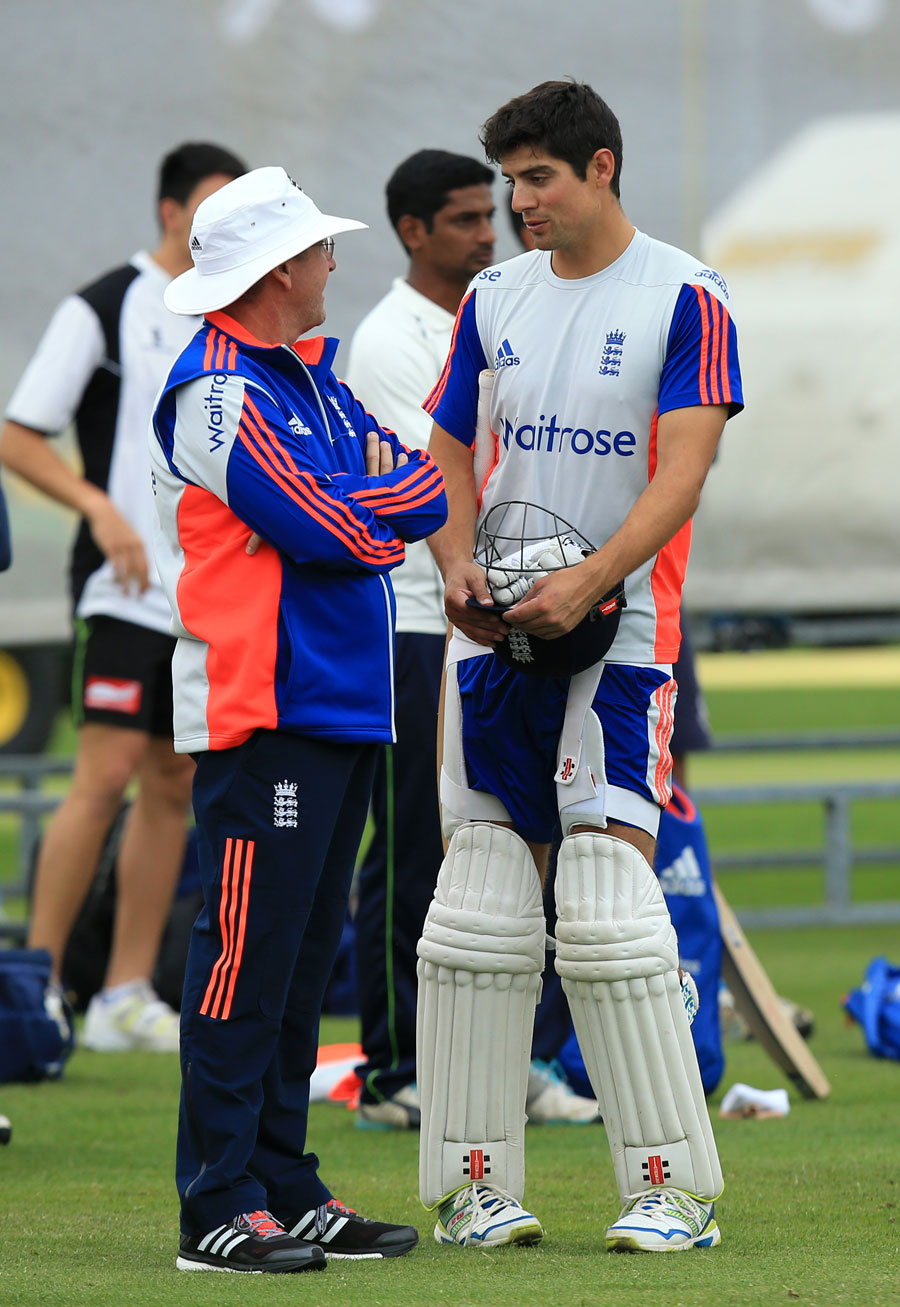
AP, London :
The cracks appear to be showing in the normally-invincible Australian cricket team.
The second Ashes test starting at Lord’s on Thursday follows hard on the heels of England’s comfortable 169-run victory in the first game in Cardiff.
Australia’s most effective bowler in Cardiff, Mitchell Starc, has been receiving injections in an ankle injury and veteran wicketkeeper Brad Haddin has withdrawn from the second match for what Cricket Australia described as “family reasons.” The withdrawal means a test debut for New South Wales wicketkeeper Peter Nevill.
Haddin faced criticism in Cardiff for dropping Joe Root, who went on to score a crucial 134 in England’s first innings. Root was on 0 when Haddin put down the catch.
Pace bowler Peter Siddle is tipped to replace Starc if he does not recover.
Australia coach Darren Lehmann was clearly disappointed with the placid wicket in Cardiff that negated the bouncers used frequently in the past to intimidate England’s batsmen. “I’d just like to be able to bowl a bouncer on day one. That’d be nice,” he said after the defeat in Wales.
The Lord’s strip is usually a perfect test wicket, offering a reasonable amount of pace and height, but does not have the bounciness often found in wickets at London’s Oval or Australia’s WACA and beloved by quick bowlers.
Having arrived in England tipped to easily retain the Ashes, Australia is now facing criticism that its squad is on its last legs, injury-plagued and generally too old.
Several of the tourists, notably allrounder Shane Watson (34) and Haddin, looked awkward in Cardiff and several other players are in their mid-30s.
England has already announced an unchanged team to the one that surprised the Australians in Cardiff.
England’s new coach Trevor Bayliss has only just started his job, and the team revealed a fundamental change in strategy in the series against New Zealand earlier in the summer, with the aggressive batting tactics delighting the fans.
That experiment started before Bayliss was appointed, and continued in Wales when the batters played with freedom and real determination.
Bayliss, an Australian, advised his players to beware his countrymen when they are cornered.
“They don’t like losing,” he said after the Cardiff game. “They have a proud record and losing will mean they come out in the next game trying to prove a point and trying to make up for their performance in this match.”
England captain Alastair Cook did not succeed with the bat in Cardiff, but was widely praised for his tactics in the field, especially the bowling changes and field placements. The new generation of test batsmen – Gary Ballance, Ben Stokes, Jos Buttler and Moeen Ali – all scored good runs and showed little fear of Australia’s three-man pace attack.
Resisting the temptation to bowl bouncers, England’s pacemen bowled a full length, finding swing that accounted for several Australians who were tempted into driving far too often.
“You have to adapt. A lot of our plans went out of the window when we saw the pace of the wicket, because there’s no point constantly trying to get someone’s edge when it isn’t going to carry,” Stuart Broad said. “We had to think on our feet. I didn’t want to waste a bouncer.”
Australia lost fast bowler Ryan Harris before the Ashes even began when a knee injury forced him to announce his retirement from cricket.
Allrounder James Faulkner was not due to play any part in the Ashes but may have been in contention for a spot in the one-day team until Tuesday, when he was charged in England, where he has been playing the county game, with drink-driving.
He will appear in court in England later this month but Cricket Australia said he would not be considered for limited overs games after the Ashes.
The two teams clearly like to needle each other.
The latest barb was aimed by England fast bowler James Anderson, who pointed to the Australian players having turned down a post-match beer in the England changing rooms in Cardiff.
The tradition of players enjoying a drink after the game is widespread, but Australian players insisted they’d only sit down to sup with their opponents at the end of the five-match Ashes series in September.

